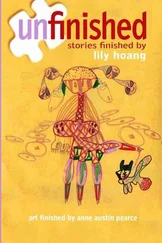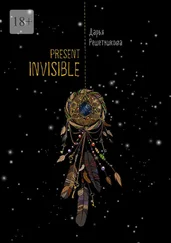“On the day when I know all the emblems,” he asked Andreas, “shall I at least possess all knowledge of the human mind?”
And the Russian answered, “My friend, do not believe it. On that day, you will be an emblem among emblems.”
Lou Andreas was no ordinary woman. She was simultaneously a woman, a wife, a friend, a daughter, a writer, a psychoanalyst, an observer, etc. She is the writer of over a dozen books, and yet what is remembered of her is her role as lover, student, and devastator. She is measured by the yardsticks of the men she slept with, the ones she loved, her closest friends. She is known as the woman who renamed Rilke from Rene to Rainer because Rene was simply too feminine. She is woman who left Friedrich Nietzsche, and although not quite the cause of his insanity, something close. She is the woman who at fifty, redefined herself as a psychoanalyst and began a lifelong friendship with Sigmund Freud, who studied with him, but she is more than all this. She is an explorer, a renovator, an artist, but her legacy is that this one unimaginable woman was paramour to these three incredible men. Lou Andreas-Salome should be in our memory so much more, but what are all these women — all these women living right down the hall — if not mere extensions of the men they sleep with?
The woman down the hall is writing her memoir. She has been ever since she was a child. Every evening, beginning age five, Christmas Day, she has written a roughly one page, first person account of her day. She includes snaps of conversations, the minutia of day-to-day life, the arguments and resolutions. She writes down as much as she can remember because even then, even when she was still a child, she had notions of greatness and the acceptance that one day, she would not be able to remember things so clearly.
The woman down the hall eats. She eats and eats and it is repulsive how she forklifts food into that cave of her mouth. She is a monster, never fulfilled.
The woman down the hall reads: A rough patch of road may have left you feeling as though nothing good is going to happen to you again, Aries. You got used to setbacks, disappointments, and maybe even betrayals that made you feel like the powers that be weren’t particularly interested in your happiness. And all of this was probably happening despite your diligent efforts to make things better. But there is no connection to recent events and what you can expect in the future. In fact, good things are coming in abundance. You are capable of great things now, and many blessings are on their way to you.
“Yes,” the woman down the hall says, pumping her fist to a raised knee.
The woman down the hall used to be beautiful, but now when she looks at herself, she is repulsed, and when she sees some young trick of a girl walk down the street, she catcalls warnings, hurls dirty names at them. Sometimes she is ashamed of herself for doing this, but mostly, she sees it as an act of altruism, as if she were imparting some kind of knowledge on them that might save them from becoming — her.
The woman down the hall used to be homeless, but that was long before she moved in here with us. She is so mystical to us, this one particular woman down the hall. We want to ask her a zillion questions about her life, about how she came to us, but each time we begin to ask, we become lost because there are so many new questions that emerge and demand immediate attention. We are exhausted before she has exchanged one word.
Sigmund Freud and Lou Andreas-Salome did not see each other often. It was something similar to the great kings of the past demanding their minions to travel to the far edges of their lands to report the wealth and beauty of their kingdoms. After years of exploration, these men would return and tell the great kings stories filled with mountains and adventure, but despite what these men saw during their travels, their stories would remain the same. Even if they had seen nothing but burnt deserts so desolate that even cacti hid below the surface of sand or prairies with blank fields of fading grass, they would return to their kings and narrate tales of the fabulous technological advances or the fantastic riches — seen in the form of emerald or ruby statues of the king — of the land. The great kings would sit back, and in their old age and inability to discern truth from fiction, they would be sufficiently satisfied. But what Freud and Andreas lacked in physical interaction, they supplemented with tender but simultaneously cutting letters. And so the Great Freud was able to remain consistently close to his sometimes friend and sometimes student.
There was a kindness in their letters, a familiarity where familiarity did not exist. Such was the nature of their relationship, with Lou Andreas asking about Freud’s family and Freud relating the distant friendship between his son and her lover, perhaps hoping that Andreas would relay an offer to bond the two men. But there was something distinctive about their relationship, one that seemed to exceed that of friends or colleagues. There was a knowledge there. There was an understanding.
“The other psychoanalysts warn me of hysterics and obsessions, dreams and desires, or else they inform me of their newly discovered theories of this or that, asking for suggestions or solutions. And you?” the Great Freud asked Lou Andreas, “you have equally difficult patients and ideas and yet you can tell me only the thoughts that come to an old man who sits on his doorstep at evening to enjoy the cool air. What is the use, then, of all your work?”
“It is evening. I imagine that we are both seated on the steps in front of our homes — you in front of yours, me in front of mine — sitting simultaneously together and apart. There is a slight breeze,” Lou Andreas answered. “Whatever the distance my words may evoke around you, you will see it from such a vantage point, even if instead of this one place I envision the war your sons will survive, the trenches and mud, the rain and the desire to drown instead of fight and that slight breeze carries with it the stench of death from this muddy estuary.”
“My gaze is that of a man meditating, lost in thought — I admit it. But yours?”
The Russian knew that when Freud became vexed with her, the doctor wanted to follow more clearly a private train of thought, so Lou’s answers and objections took their place in a discourse already proceeding on its own, in the Great Freud’s head. That is to say, between the two of them it did not matter whether questions and solutions were uttered aloud or whether each of two went on pondering in silence. In fact, they were silent, reclining on their respective couches, eyes half-closed, breathing.
It was times like these that Lou Andreas believed most strongly in narcissism, not Freud’s understanding of the word, which varied from her own definition, but it was times like these that proved Andreas the superior psychoanalyst for her comprehension and understanding of self and others.
“There is a girl,” Lou Andreas tells Freud, “who I cannot seem to understand because she was so exceedingly normal, without fault or flaw, until she became sick with scarlet fever two years ago. Before then, she was a happy child, without care or concern for the world around her, except that she put constant attention to ensuring that her parents were satisfied. Then, she became sick, and since then, she has not slept. She will remain awake for weeks because she knows that once she sleeps for longer than one hour, the nightmares will begin and shortly thereafter, she will scream herself awake.”
Читать дальше












